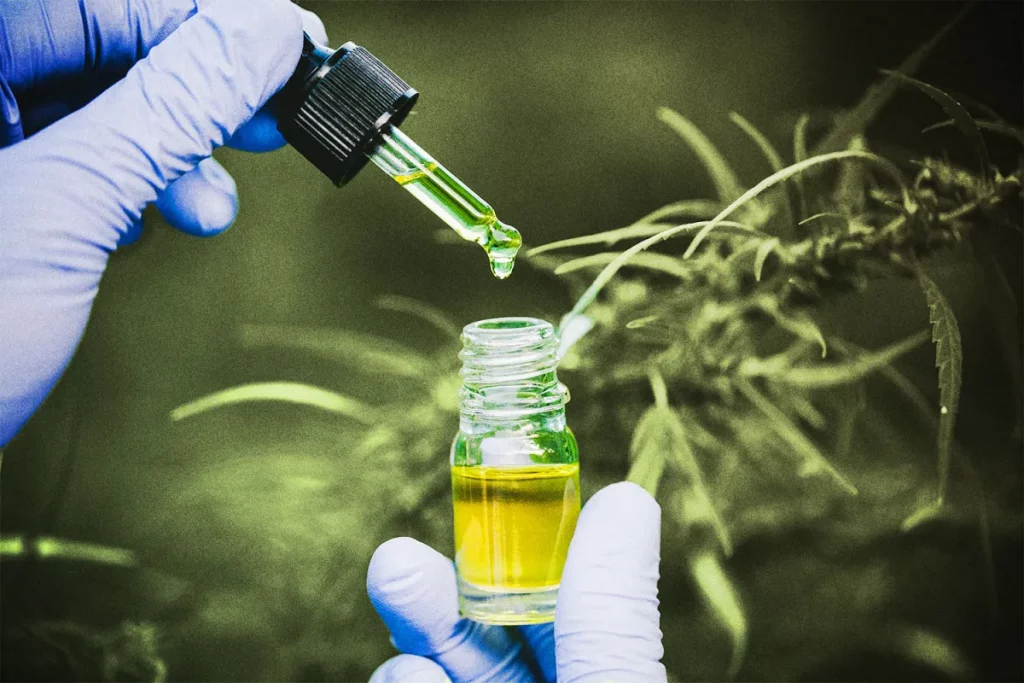Delta 8 Vs Delta 11: Exploring The Differences Between The Cannabinoids

Table of Contents
If you're familiar with the world of cannabinoids, you may have heard about Delta 8 and Delta 11. These two compounds are popular due to their unique effects and legal status. This article will delve into the differences between Delta 8 and Delta 11, their effects, and their legal status.
What are Delta 8 and Delta 11?

Delta 8 and Delta 11 are both cannabinoids that occur naturally in hemp and cannabis plants. These compounds are part of the larger family of cannabinoids that interact with the body's endocannabinoid system. While THC (Delta 9) is the most well-known cannabinoid for its psychoactive effects, Delta 8 and Delta 11 also have similar properties, albeit in varying degrees.
Legal Status of Delta 8 and Delta 11
One of the main reasons for the recent surge in interest in Delta 8 and Delta 11 is their legal status. Thanks to the 2018 Farm Bill, Delta 8 and Delta 11 are legal on a federal level. However, it's essential to note that some states have updated their local laws to make minor cannabinoids like Delta 8 and Delta 11 illegal. It's crucial to check your state's laws to ensure you can legally purchase and consume these cannabinoids.
Effects of Delta 8 vs. Delta 11
One of the key differences between Delta 8 and Delta 11 is the intensity of their effects. Delta 8 is known for its milder psychoactive effects compared to Delta 11. Users often describe the high from Delta 8 as more subtle and less overwhelming than Delta 11. This makes Delta 8 a popular choice for those who want to experience the benefits of cannabinoids without feeling too intoxicated.
On the other hand, Delta 11 packs a potent psychoactive punch. It is considerably more potent than Delta 8 and can yield a more intense high when consumed. Due to its strength, Delta 11 is often recommended for experienced users who are looking for a more profound and euphoric experience.
How to Consume Delta 8 and Delta 11

Delta 8 and Delta 11 can be consumed in various forms, including edibles, vaping products, and tinctures. Each method of consumption offers a different onset time and duration of effects. Edibles, for example, have a slower onset but longer-lasting effects, while vaping products provide a more immediate high that wears off more quickly.
When trying Delta 8 or Delta 11 for the first time, starting with a low dose is essential and gradually increasing as needed. Everyone's tolerance and reaction to cannabinoids can vary, so it's crucial to listen to your body and adjust your dosage accordingly.
Best Place To Find Cannabinoid Products
Discover the ultimate destination for all your cannabinoid product needs at Mellow Fellow. Our expert team is composed of Ph.D. chemists, innovative pharmacists, and passionate cannapreneurs dedicated to ensuring the safety and reliability of our cannabis products. Drawing from strong backgrounds in pharmaceuticals, chemistry, and cannabis, Mellow Fellow provides the most dependable options available.
We place a strong emphasis on ethical lab practices, consumer well-being, and cutting-edge formulations. Renowned for our exceptional Delta 8 oil, Mellow Fellow excels in delivering top-quality products thanks to our unwavering commitment to excellence. Explore our exclusive blends, carefully curated for safety, happiness, and relaxation, with customer satisfaction always at the forefront of our priorities. Enjoy a special 20% discount on your first purchase with code LIVELIVE.
Final Thoughts
In conclusion, Delta 8 and Delta 11 are cannabinoids with unique effects and benefits. While Delta 8 is known for its milder, more manageable high, Delta 11 provides a more intense and potent experience. Both compounds are legal on a federal level, but it's essential to be aware of state laws that may restrict their use.
Whether you choose Delta 8 or Delta 11, always purchase from reputable sources to ensure you get a quality product. Remember to start with a low dose and consume responsibly. As with any cannabinoid, individual experiences may vary, so finding what works best for you is essential. Enjoy exploring the world of cannabinoids and the potential benefits they can offer.
Disclaimer:The information provided in this article is for educational and informational purposes only. It is not a substitute for professional medical advice, diagnosis, or treatment. Always seek the advice of your physician or other qualified health providers with any questions you may have regarding a medical condition.
